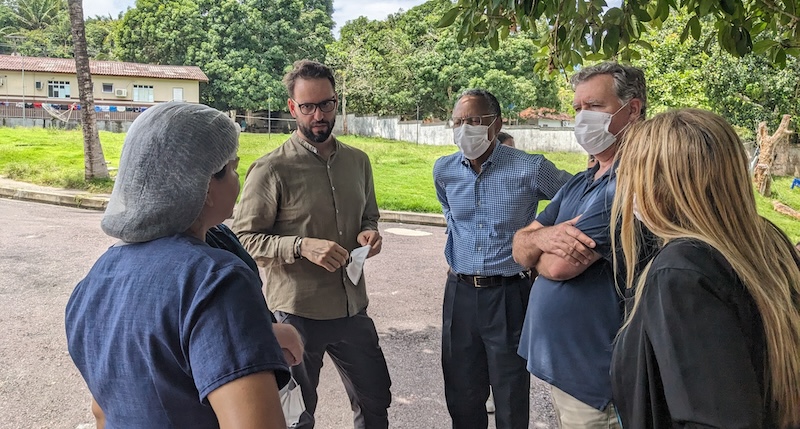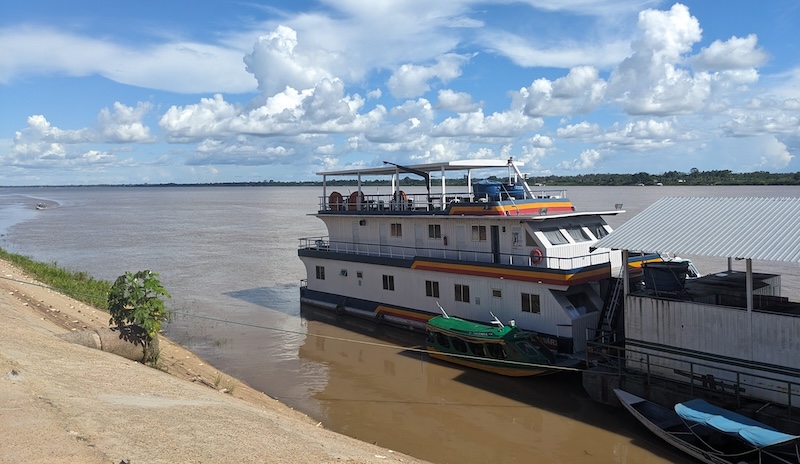Global Emergency Medicine Innovation and Implementation


Professor of Emergency Medicine Research Professor of Global Health Professor in Neurosurgery
What was once a dream of a few Duke Emergency Medicine faculty members is now a reality: The Global Emergency Medicine Innovation and Implementation (GEMINI) Research Center allows researchers to collaborate with partners around the globe to address some of the most impactful global health challenges related to access to care. Starting off with strong partnerships in Tanzania and Brazil, the GEMINI Research Center is now home to academic pursuits spanning more than 20 countries. Designated as a research center in 2021, GEMINI is led by Dr. Catherine Staton, Dr. Joao Vissoci, and Ashley Phillips, and supports more than 30 global faculty including 9 of our own at Duke EM.
Built upon Dr. Staton’s NIH-funded career development award creating an alcohol harm reduction intervention and its subsequent adaptive implementation trial, the GEMINI Research Center supports global and local capacity building. As this first research line progresses to a new NIH-funded dissemination planning grant, (MPI Staton/Mmbaga, R34AA031585), GEMINI continues its focus on the development of rising stars across the innovation and implementation spectrum in global emergency medicine.
Associate Professor Julian Hertz is one such physician-scientist, who has progressively investigated barriers to effective care for cardiovascular disease and interventions to improve care for patients in northern Tanzania. Outside of his NIH-funded career development award, with American and Tanzanian investigators, he is co-leading an NIH project to test an intervention for hypertension care among people living with HIV in Tanzania.

Through multiple pilot and NIH-funded projects like Dr. Hertz’s, GEMINI faculty have partnered with global colleagues to share institutional knowledge and opportunities with our collaborators engaged in clinical practice and research in low- and middle-income countries. The largest of such initiatives is the ongoing Trauma Research Capacity Building in Kilimanjaro, Tanzania, (TRECK) Program (Mmbaga/Staton PD, D43TW012205), which has sponsored 12 learners enrolled in masters and doctoral curricula at the Kilimanjaro Christian Medical University College in Moshi, Tanzania. The first cohort will graduate this year, and go on to build the research portfolio locally.
Outside of Africa, GEMINI researchers have also contributed to the growth of research funding and administrative capacity in Manaus, Brazil. Built through a strong partnership supported by NIH, Dr. Charles Gerardo led a team to investigate the opportunities to improve timely quality care for snakebite envenomation in the low-resource areas of the Amazon Forest. Experts in infectious disease and venomous animals at the Fundacao de Medicina Tropical Doutor Heitor Vieira (FMT) have continued to work with Duke EM implementation and data science experts on a number of initiatives.

Whether studying zoonotic illness trends or the relationship between economics and mental health, a common thread
has emerged in recent years: changing environmental conditions are ushering in an onslaught of detrimental effects on the people, wildlife, and economies of the world’s most vulnerable regions.
As all signs point to climate change, teams based in the US and Brazil have resolved to understand these trends in order to predict and prepare for crises that may cause further stress on natural, human, and healthcare resources, with a particular focus on the Brazilian Amazon. Though various global surveillance efforts are underway, a significant gap remains in understanding human-animal interactions among the indigenous populations within the Amazon Forest of Brazil. As such, Joao Vissoci will lead the Vigilance of Viruses Emerging in the Amazon (ViVErA) Project, which aims to evaluate the zoonotic potential of virus transmission in indigenous communities in the Amazon and establish a sustainable surveillance system. In its formative stages, the ViVErA Project will rapidly identify outbreaks and inform indigenous health policies, such as vaccination and health promotion campaigns, to limit spread and impact of emerging concerns.
Early in 2024, leaders at FMT welcomed the leaders of the GEMINI Research Center and Duke Global Health Institute (DGHI) to Manaus, where they gained a deep appreciation of the challenges experienced in this unique environment, as well as the necessity to develop comprehensive surveillance programs. The visit was profoundly moving for all parties, whose farewell marked not the end of a chapter, but the beginning of a book.
The dream of the GEMINI Research Center is very much alive, whether in Moshi, Manaus, Delhi, or Durham. Ambitions and operations continue to grow apace with the faculty and research portfolio, ever-evolving to illuminate and address emerging needs in a changing world.

